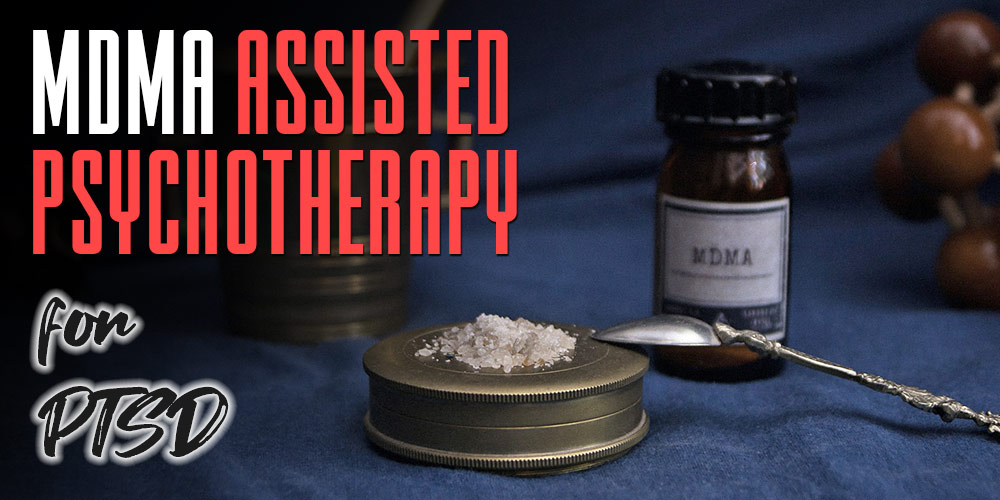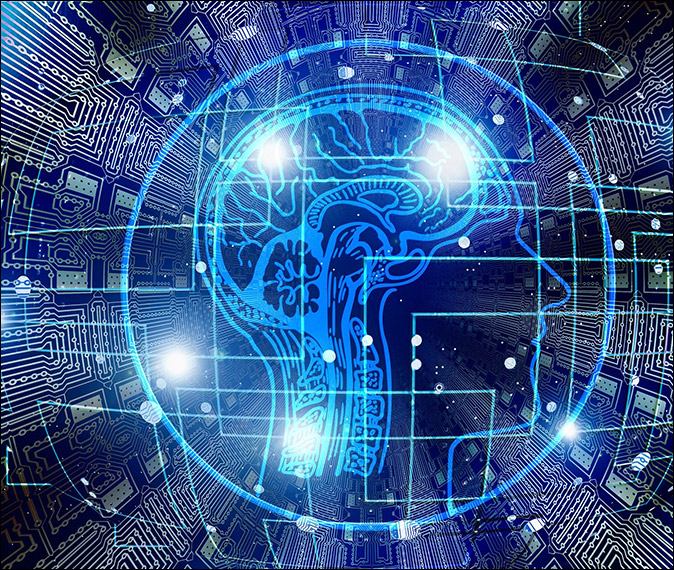
In late 2019, the Food and Drug Administration (FDA) authorized a breakthrough therapy designation to study the effects of MDMA Assisted Psychotherapy for PTSD Treatment to help people struggling with post-traumatic stress disorder. Full approval for this therapeutic approach could come as early as 2021 or 2022.
In popular culture, MDMA, which also goes by the name “molly, “ecstasy,” or simply “E,” is generally considered a party drug, associated with raves and music festivals.
However, MDMA was initially synthesized in the early 1900s as a way to suppress one’s diet.
About 50 years later, some psychiatrists utilized the drug’s ability to lower a patient’s emotional inhibitions and promote effective therapeutic outcomes with MDMA therapy.
Today, MDMA for PTSD treatment may prove to become a breakthrough therapy for helping people overcome many symptoms and improve their quality of life.
As psychedelic-assisted therapy continues to expand and become mainstream, it’s important to understand how PTSD affects a person and how MDMA assisted therapy treatment can benefit those coping with sometimes debilitating symptoms of the disorder.
What is Post-Traumatic Stress Disorder (PTSD)?
The National Alliance on Mental Health (NAMI) reports that an estimated 9 million adults – about 3.6 percent of the population – are currently struggling with post-traumatic stress disorder. Nearly half of those people are classified as having severe symptoms. These statistics do not include children, who can also develop PTSD.

The cause of many types of PTSD is directly related to violent trauma, whether it was experienced personally, or even witnessed when happening to another person.
The disorder is often associated with soldiers or citizens who survived war or armed conflicts. In reality, PTSD can affect anyone, as other causes can include domestic abuse, verbal or sexual assault, violent accidents, homelessness, or any event that indelibly traumatizes a person.
During traumatic events, a biological reaction known as “fight or flight” takes hold. Cortisol, sometimes referred to as the “stress hormone,” floods the brain, causing a person’s heart rate to increase and sends blood to the muscles in preparation for running away or fighting for your life.
Related: 7 Ways to Lower Cortisol Levels Naturally
In some cases, the biological reaction is so severe it leaves a kind of imprint on the brain, and even years after the trauma, a person can find it difficult to ever feel the safety and security they once experienced.
Symptoms of PTSD can range from mild to severe, and include some of the following:
- Flashbacks, dreams and recurring or intrusive thoughts about the trauma that happened, sometimes years earlier
- Avoidance of people or places involved in or associated with the experience
- Hyper-vigilance, insomnia, easily startled or having seemingly outsized mental or physical responses in situations that remind them of their trauma
- Mood disorders and other mental health issues, such as depression, anxiety, overwhelming feelings of guilt or shame
- Cognitive issues, like being unable to focus, difficulty with decision making, or memory problems
Even mild symptoms of PTSD can be difficult to live with on a regular basis. Severe symptoms make day-to-life nearly impossible.
It should come as no surprise then that PTSD and addiction are often linked. In fact, more than half of the people diagnosed with PTSD also struggle with a substance use disorder, in many cases developed as a way to self-medicate the above symptoms.
With the proper treatment, people can go on to live healthy and productive lives, and the approval of MDMA assisted treatment therapy might be especially useful for people battling severe treatment-resistant PTSD.

What is MDMA-Assisted Psychotherapy for PTSD?
The drug MDMA is not, in a traditional sense, a medication for PTSD. It is not like, for instance, taking an aspirin for a headache. Rather, the effects of MDMA can serve as a catalyst that allows patients the ability to address the horrors or difficulties of their traumatic experience through guided professional therapy sessions.
“What I would like people to understand,” Dr. Rick Doblin, founder of the Multidisciplinary Association for Psychedelic Studies (MAPS), said in an interview, “is that MDMA itself is not the treatment. MDMA facilitates psychotherapy, so it’s really the psychotherapy that does the healing…”
Dr. Doblin further points out that MDMA decreases activity in the amygdala, the part of the brain that processes fear, while increasing activity in the prefrontal cortex, which is responsible for executive functioning like reasoning and logical thinking.
This process, says Dr. Doblin, helps people process their trauma and place those difficult memories into what he referred to as “long-term storage.”
This acts similar to meditation and mindfulness, which actually shrinks the size of the amygdala, and in turn, increases the size of the pre-fontal cortex.
In a 2018 study published in the medical journal The Lancet, psychiatric researchers used MDMA therapy for PTSD on 26 combat veterans and first responders. The results were dramatic.
After just two MDMA-assisted sessions, 68 percent of the participants no longer met the clinical criteria for PTSD. It was also found to improve their sleep patterns and make participants more conscientious.

What is the Future of MDMA Therapy for PTSD Treatment?
To be clear, patients with treatment-resistant PTSD are not sent home or to the drugstore for a bottle of MDMA. This therapeutic approach is only performed in a professional psychiatric setting, over several sessions with therapists trained to use MDMA for PTSD.
That said, with such positive results, MDMA will likely be available for those who need it in the coming year or two. Some experts believe the FDA’s breakthrough designation will pave the way for even more intricate studies of how psychedelics can be effective tools in treating psychological disorders.
The Multidisciplinary Association for Psychedelic Studies (MAPS) has more information on their website about MDMA-Assisted Psychotherapy for PTSD, as well as treatment therapies using marijuana, LSD, and other psychedelic research.
For now, traditional treatment therapies for PTSD and other mental health conditions are successful for those who need help.
In the very near future, we will hopefully start to see even newer non-traditional treatment protocols come to light that will help more people find relief from the painful and traumatic symptoms of PTSD and mental health conditions.
Related Posts
- June is PTSD Awareness Month
Because trauma impacts so many people, June is recognized every year as PTSD Awareness Month.…
- 5 Types of PTSD and Treatment for Post-Traumatic Stress
In the last several decades, it's become clear to health care experts that anyone can…
- 23 Celebrities and Famous People With PTSD
Post Traumatic Stress Disorder can happen to anyone, and there are many celebrities and famous…
